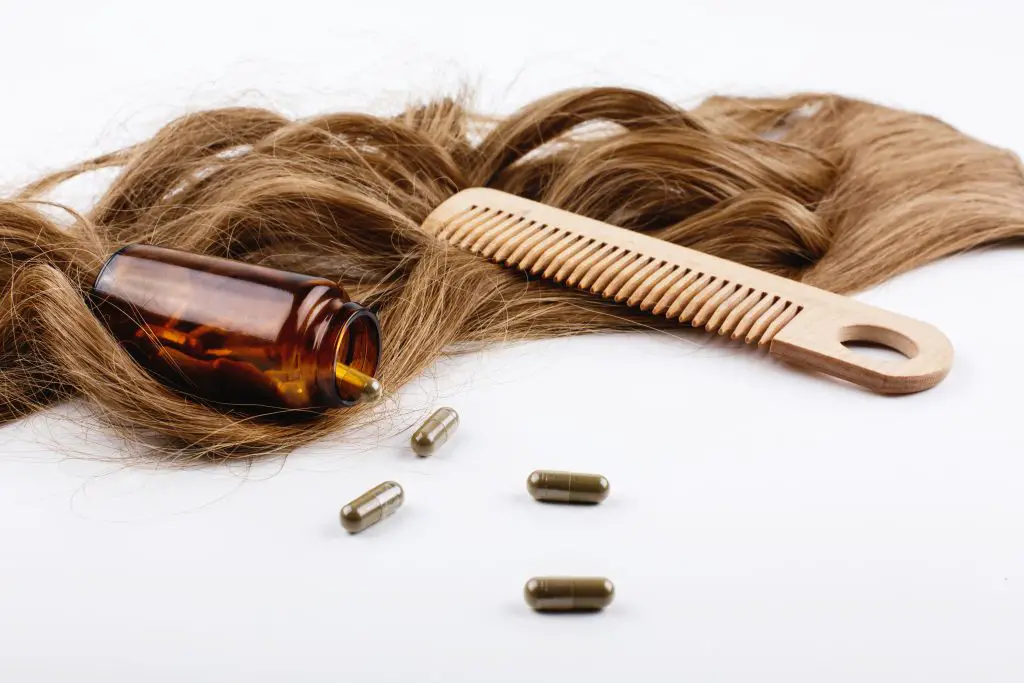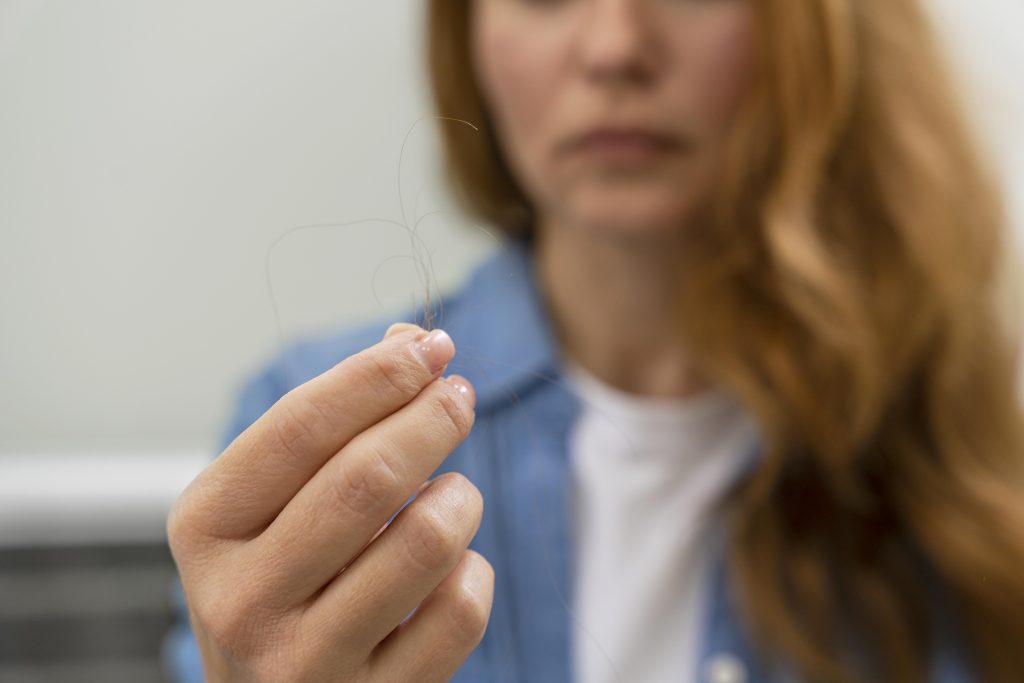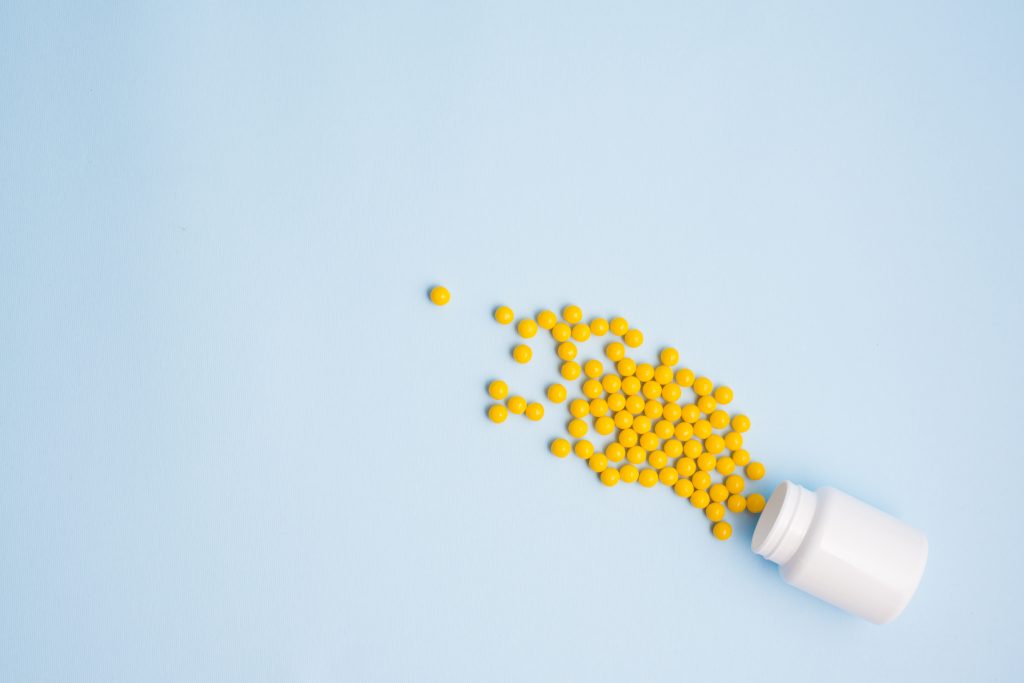Written By: Jaria Tu Zahra-Certified Nutritionist and Hair Nutrition Expert
Editor: Rabia Aman
Unlock the Secret-How Supplements Transform Your Hair Health
Many people share the desire to have beautiful, and healthy hair. Even though we frequently spend money on different hair care products, we occasionally forget the important part that vitamins play in having beautiful hair. Understanding how specific supplements can make a significant difference can help you unlock the key to optimal hair health. We will look at certain dietary supplements for hair in this post to see how they can benefit you.
People who experience hair loss usually go for nutritional supplements without knowing the efficacy of these supplements. In this blog, I discuss how supplements help in hair loss conditions like telogen effluvium (TE), androgenetic alopecia (AGA), Female pattern hair loss (FPHL), and Alopecia areata.
These all are hair disorders that occur due to any vitamin or mineral deficiency but we don’t know which mineral deficiency or toxicity cause these specific conditions.

Table of Contents
Iron
First, discuss iron deficiency. Iron deficiency anemia causes telegon effluvium and in this case, iron supplementation helps in hair loss but without anemia, supplementation is not recommended because it can cause toxicity of iron that can cause hemochromatosis.
Since iron aids in the creation of hemoglobin, which delivers oxygen to hair follicles, iron is essential for keeping healthy hair. The growth of hair and general health depends on oxygen. Hair thinning and even hair loss can result from low iron levels. Iron supplements can be a powerful weapon against these problems, supporting healthier, more vivid hair.
Moreover, you can use natural iron such as iron in eggs, and iron in milk. use of iron in your daily life will be beneficial for your hair.
Zinc
Another mineral that is crucial for healthy hair is zinc. This ensures that hair follicles are operating properly by assisting in cell reproduction, tissue growth, and repair. Additionally, zinc supports hormone homeostasis, which may promote stronger hair growth. You can strengthen your hair against breaking and achieve the full, thick hair you seek by taking zinc supplements.
Zinc plays an important role in many functions of the body. It has a major role in protein synthesis and cell division. Patients who experience zinc deficiency also come with the hair problems like TE, AGA, FPHL, and AA. So after checking the serum zinc levels supplements can help in treating these conditions. But without a diagnosis, supplementation can cause toxicity that can result in diarrhea, vomiting, and pain.
Biotin
The vitamin B7 biotin, also known as vitamin B7, is frequently referred to as the “hair growth vitamin.” The production of keratin, the protein that builds up your hair, is significantly supported by it. Supplemental biotin can make hair more elastic, less brittle, and encourage hair development, resulting in thicker, more resilient hair strands.
Studies show a positive relationship between biotic deficiency and alopecia. Also, biotin supplementation shows improvement in these conditions. Although biotin deficiency is not very common so before supplementation serum biotin levels should be checked.

Biotin Results After 1 Week– A Closer Look
Although individual results may vary, some people claim to have noticed a difference in the texture and vigor of their hair after just one week of taking biotin tablets. Because biotin helps to support the formation of keratin, which can improve hair elasticity and give it a healthier appearance, these immediate improvements are ascribed to this. Be aware that sustained use may be necessary for long-term benefits.
Amino Acids and Protein Supplementation
Hair is made of protein, and the building blocks of protein are amino acids. To enhance hair structure and encourage hair development, amino acids are essential. You may restore damaged hair, prevent split ends, and enhance overall hair texture by consuming additional amino acids and protein, giving you smooth and silky locks.
Hair changes like thinning of hair and hair loss were observed in Protein-energy malnutrition disorders i.e. marasmus and kwashiorkor. An amino acid L lysine has an important role in zinc and iron absorption and iron supplementation along with L lysine shows improvement in iron absorption that helps in the treatment of telogen effluvium.
There are different types of amino acids, essential amino acids list, and non esstional amino acids list. All amino acids have some kind of impact on your hair. Moreover, amino acids are good building blocks of proteins.
Fatty acids
Healthy hair requires omega-3 fatty acids. They provide nutrition to hair follicles, which lowers inflammation and encourages hair growth. These beneficial fats also give your hair a natural shine and guard against dryness and brittleness. You can keep your scalp healthy and enhance the quality of your hair by using fatty acid supplements in your daily routine.
A deficiency of polyunsaturated fatty acids like linoleic acid and alpha-linoleic acid shows results in hair loss. In this situation, the use of different oils that contain these fatty acids like safflower oil helps in hair growth.
Selenium
This mineral is also known as an antioxidant that helps prevent from oxidation of hair follicles which can contribute to hair problems but without any evidence of serum level deficiency, it can cause toxicity that can also result in hair loss, GIT problems, memory problems, and blisters on the skin.
Powerful antioxidant selenium aids in preventing oxidative stress from harming hair follicles. Additionally, it contributes to the preservation of a favorable hormonal equilibrium that affects hair development. You may protect your hair from environmental deterioration and keep it colorful and strong by taking selenium supplements.
Vitamin A supplementation
There is no evidence of vitamin A supplementation in the improvement of hair problems. However vitamin A toxicity can results in hair problems so before taking any supplementation the serum levels of vitamin A should be checked.

Antioxidants
Studies have shown that hair loss can occur due to oxidative stress and many minerals and vitamins have oxidative properties like zinc, vitamins C, E, and A. Although these supplements prevent form oxidative stress there is also a major risk of toxicity in the absence of these nutrient deficiencies. So the safe way of having antioxidants is from foods like green leafy vegetables, fruits, and herbs instead of supplements.
Antioxidants, including vitamins A, C, and E, are essential in the fight against free radicals, which can harm hair cells. Additionally, these vitamins increase blood flow to the scalp, which encourages strong hair growth. Antioxidant vitamins can help you eat healthier while also keeping your hair looking young and wholesome.
Vitamins That Cause Hair Loss
While supplements can do wonders for your hair health, it’s essential to be aware of certain vitamins that, in excess, can lead to hair loss. Moderation is key when it comes to any supplement intake. Here are some vitamins to watch out for:
Here is some research on the Role of Vitamins and Minerals in Hair Loss.
- Vitamin A: Though essential for overall health, excessive vitamin A can be harmful to your hair. High doses of vitamin A can trigger hair loss, so it’s crucial to follow the recommended daily dosage.
- Vitamin E: While vitamin E is an antioxidant that promotes healthy hair, excessive intake may lead to increased blood thinning, which can indirectly contribute to hair loss.
- Vitamin B6: This vitamin is vital for hair health, but consuming more than the recommended dosage may cause hair loss over time.
- Vitamin D: Insufficient vitamin D can lead to hair loss, but excessive amounts can have adverse effects as well. Strive for a balanced intake.
- Vitamin D deficiency can contribute to hair loss, making it essential to ensure sufficient intake of this vital nutrient to maintain healthy hair follicles and overall hair health.
- Niacin (Vitamin B3): High doses of niacin can cause temporary hair shedding, so be mindful of your intake.
Remember, it’s always best to consult with a healthcare professional or a registered dietitian before starting any new supplement regimen. They can help you determine the right dosage and ensure it aligns with your specific hair health needs.

From the above discussion, it is concluded that the supplements of the above-mentioned nutrients help in hair disorders but without the known deficiency these can cause negative effects on health. So before taking these supplements one should consult a nutritionist or a doctor and inform them about the symptoms. They will prescribe you the supplement according to the deficiency of that specific nutrient so that you can protect yourself from adverse outcomes that may result from toxicity.
Follow hairsknowhow for more medically reviewed content about hair care. Check out our website for more hair-related blogs.

Rabia Aman
As an SEO content writer, Rabia Aman specializes in creating engaging and well-researched content across various niches. Beyond her writing expertise, she is a passionate dreamer, and avid reader, and enjoys surrounding herself with enriching conversations and inspiring words.
